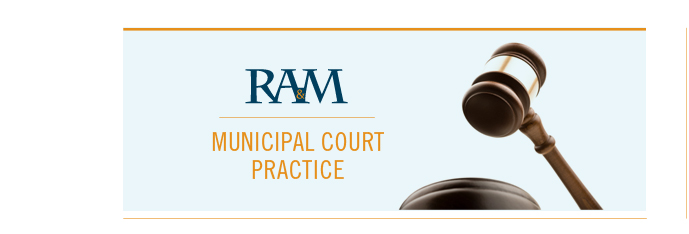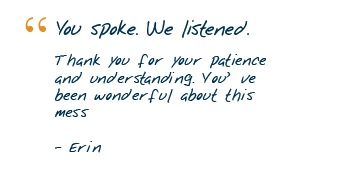|


We are a multidisciplinary law practice focused on the needs of PEOPLE.

DRUNK DRIVING/DWI/DUI
TRAFFIC VIOLATIONS:
SPEEDING, DRIVING ON THE SUSPENDED LIST, DRIVING WITHOUT INSURANCE, DRIVING WITHOUT A LICENSE, CARELESS DRIVING, RECKLESS DRIVING
CRIMINAL MISDEMEANORS
DISORDERLY CONDUCT
DRUG OFFENSES
SHOPLIFTING
ASSAULT
MUNICIPAL ORDINANCE VIOLATIONS
In addition to fines, motor vehicle violations can result in points on your driver’s license. An accumulation of too many points, or certain moving violations may require you to pay expensive surcharges to the N.J. DMV (Division of Motor Vehicles) or have your license suspended.
Our firm represents clients in cities and townships throughout the State of New Jersey . We take municipal court violations seriously and understand the effects the consequences they can have on a person’s life. We will fully investigate your case, aggressively represent you, and work with you to find the best possible solution to your problem.
DRUNK DRIVING/DWI
A drunk driving offense in New Jersey is commonly called driving under the influence of alcohol (DUI) or driving while intoxicated/impaired (DWI). DUI/DWI is a serious charge that may have a significant negative impact on your life. If you are charged with a drunk driving offence, you face the suspension or revocation of your driver's license, significant monetary fines and even imprisonment. It is imperative that a person charged with DUI/DWI, whether as a first offender or a repeat offender, get skilled legal advice and representation. Our firm defends DUI/DWI charges in Municipal Courts throughout the State of New Jersey . In defending a case, we look at all arrest related documents and available video & audio recordings concerning the operation of the vehicle, detention by police, participation in Standard Field Sobriety Tests, and all circumstances of the arrest. We will also review the legality of the traffic stop, the administration of Standard Field Sobriety Tests and any blood, breath or urine testing devices, including the administration of the Alcotest which is the standard breath testing instrument utilized in New Jersey.
The New Jersey DUI/DWI Statute, N.J.S.A. 39:4-50, makes it unlawful to "operate a motor vehicle while under the influence of intoxicating liquor . . .or . . . with a blood alcohol concentration of .08% or more by weight of [blood] alcohol." An arrest for DUI or DWI often comes after either a field sobriety test or a breathalyzer test is failed. A blood alcohol content of .08 or higher is considered above the legal limit. A Defendant can be convicted of DWI in one of two ways); (A) operating a motor vehicle while "under the influence of intoxicating liquor", or (B) operating a motor vehicle with a "blood alcohol concentration of .08% or more.
Penalties differ depending upon whether the offense is a first, second or subsequent offense. In addition to the penalties listed below, a person convicted of DUI/DWI will be required to pay an insurance surcharge for three years and court costs and fees. A permanent record of the DWI conviction is also entered on the Drivers Abstract maintained by the New Jersey Division of Motor Vehicles. The penalties for a conviction of a DUI/DWI are as follows:
- First offense with Blood Alcohol Content of .08% but less than .10%: License suspension for three months; fines ranging from $250 to $400; mandatory 12 to 48 hour stay at an Intoxicated Driver Resource Center (IDRC) with related fees. A court may also impose a period of imprisonment of up to 30 days.
- First offense with Blood Alcohol Content of .10% or higher: License suspension for seven months to one year; fines ranging from $300 to $500 fine; mandatory IDRC stay of 12 to 48 hours with related fees. A court may also impose a period of imprisonment of up to 30 days.
- Second offense within 10 years of the first offense: License suspension of two years; fines ranging from $500 to $1,000; mandatory IDRC stay of 12 to 48 hours with related fees; a period of imprisonment from 48 hours to 90 days; community service of 30 days. A person shall also be required to install an ignition interlock device in the motor vehicle.
- Third or subsequent offense within 10 years of the second offense:License suspension of ten years; fine of 1,000; mandatory IDRC stay of 12 to 48 hours with related fees; a period of imprisonment of 180 days, except that the court may lower such term for each day, not exceeding 90 days, served participating in a drug or alcohol inpatient rehabilitation center. A defendant shall also be required to install an ignition interlock device in the motor vehicle.
At Rebenack, Aronow & Mascolo, we recognize the severity of mandatory fines, suspensions and surcharges, as well as the practical problems posed by losing your driver's license. Although we cannot guarantee the outcome of any case, we explore all possible defenses and will vigorously and aggressively defend each and every case.
For a free initial consultation, please call us today at 732-247-3600.








